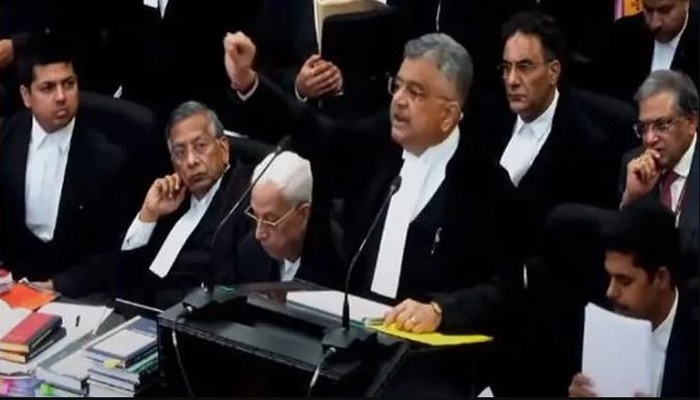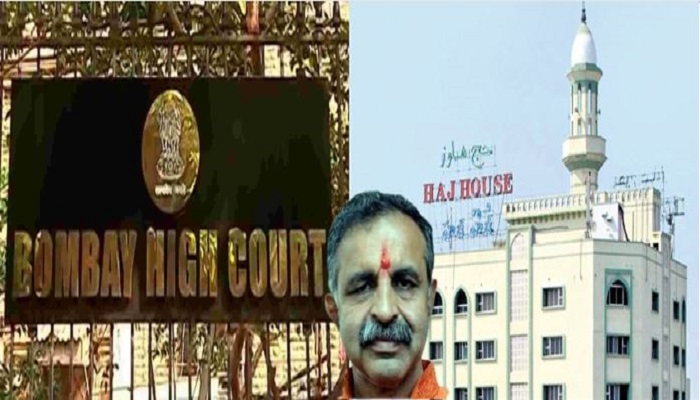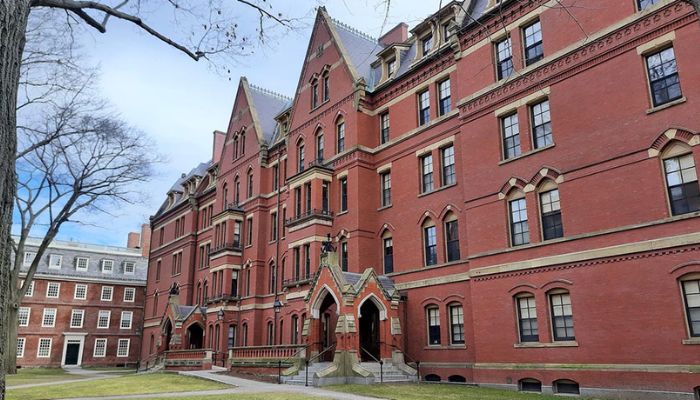Article 370 hearing: SG Tushar Mehta says any change that brings equality for Indian citizens cannot be called wrong

[ad_1]
The hearing on the petition against the abrogation of Article 370 before the 5-judge constitutional bench has entered into the 12th day on Tuesday (29 August). Representing the government of India, Solicitor General Tushar Mehta presented the Centre’s arguments in favor of the dilution of Article 370 by specifically making three major submissions.
In his argument, he raised – ‘the interpretation of Article 370’, which he deemed to be the correct interpretation, second ‘State Reorganization Act’, and third, the parameters of powers of the legislature during 356.
SG Mehta said that the other side argued that there was an assurance given to princely states and as a result of which they joined India and Article 370.
To counter this, SG Mehta highlighted the case of Madhavrao Scindia. It was the first case in which the Supreme Court dealt with the government’s withdrawal of privy purses. He said that the SC back then observed that it was necessary to amend two constitutional provisions- Art 291 and 362 which provided for privy purses. The court had highlighted that by merely changing Article 366 which is the definition clause, the government couldn’t have taken away privy purses.
SG Mehta: This court allowed that petition and said that so long as these two provisions exist, you cannot take away privy purses by merely changing Art 366 which is the definition clause.#Article370 #SupremeCourt
— Live Law (@LiveLawIndia) August 29, 2023
It is pertinent to note that the Central government at that time exercised powers under 366 and deleted the term ‘princely states’. However, SG Mehta then explained why it was not necessary to read the judgement passed in Madhavrao Scindia’s case. He added that in that case, it was done by a presidential order and one definition was deleted, however, the president never possessed this power.
SG: In this view, it may not be necessary to read Madhavrao Scindia judgement. In Madhavrao, it was done by a presidential order – one definition was deleted, the president never possessed this power.#Article370 #SupremeCourt
— Live Law (@LiveLawIndia) August 29, 2023
The government adopted the route of constitutional amendment after the judgement in Madhavrao Scindia and the government repealed those provisions. However, it was challenged in the Raghunath Rao Ganpat Rao vs. Union of India case.
Citing the SC verdict in that case, the Solicitor General highlighted that the apex court found that it was the people who were instrumental in integration rather than any privy purse. The court rejected that these rulers surrendered their sovereignty and rights over their territories as part of some so-called quid-pro-quo provisions.
In that ruling, the Supreme Court categorically stated that it is untenable to say that without voluntary accession, India would have been different from the Bharat that came into being prior to the accession.
SG Mehta said, “In this case (Raghunathrao Ganpatrao v. Union Of India), the court said that any change in the Constitution which brings everyone at par can never be faulted with. Princely states, after the formation of the Constitution, lost their special privilege, and the word ‘fraternity’ had to be given meaning.”
Based on the Supreme Court verdict in that case, SG asserted that even the removal of some provisions can further the constitutional objective. He added that this can further strengthen the basic structure of the Constitution – fraternity, equality- it’s a basic structure, it’s a part of brotherhood.
SG: If any provision which keeps out of the total composition of our Constitution as an appendage, as a transitory provision, to be removed at an appropriate stage- if it is removed, it furthers basic structure & enhances equality and fraternity, which is bedrock of Constitution
— Live Law (@LiveLawIndia) August 29, 2023
During the course of extensive arguments over the legal and scholarly interpretation of Article 367 and Article 370, the Solicitor General pointed out that there were drastic provisions in Article 370. Consequently, the central government used the Article 367 mechanism for the explanation purpose so that the government could ensure that this never happens again, and thus 367 was used.
SG: Here, only in one provision, that is Art 370, which can amend any part of the Constitution – explanation 367 mechanism is used. This is a drastic nature of this provision. 370(1) permits two organs- President, State govt to change anything in Constitution.#Article370
— Live Law (@LiveLawIndia) August 29, 2023
SG categorically highlighted why Article 370 is different from others. He said, “Article 370(3) has an in-built extinguishing provision. That’s the distinction. This is the only provision that has a self-destructive clause. This shows it was intended to be temporary.”
SG Mehta: This is the only provision that has a self destructive clause. This shows it was intended to be temporary.#Article370 #SupremeCourt
— Live Law (@LiveLawIndia) August 29, 2023
SG: What will be the impact of this interpretation? I’ll show that. In absence of a constituent assembly, which can never be modified, Art 370(3) can never come into effect and 370 gets the status of a permanent provision. Please read it in totality.#Article370 #SupremeCourt
— Live Law (@LiveLawIndia) August 29, 2023
SG clearly submitted that if the ‘constituent assembly’ had not been replaced by ‘legislative assembly’ and changes were forced to be brought out only through Article 370(3) could have made it a permanent rather than a temporary one.
SG Mehta: The difficulty is that then even the 368 route, which is suggested, cannot be taken. If that is the meaning given, that 370 remains unalterable, it becomes permanent.#Article370 #SupremeCourt
— Live Law (@LiveLawIndia) August 29, 2023
Major takeaways of Article 370 hearing so far
A day earlier, on Monday (28 August), CJI Chandrachud asserted that the fundamental rights of the people of Jammu and Kashmir were taken away by implementing Article 35A.
He highlighted that Article 35A gave the state legislature the power to define the ‘permanent residents’ of the state and provided them with special privileges. And this denied other people their fundamental rights.
CJI said, “Article 35A gave special rights and privileges to permanent residents and virtually took away the rights of non-residents. These rights included the right to equal opportunity of State employment, right to acquire property, and the right to settle in Jammu and Kashmir.”
Click here, to read more about the submissions made before the court and the specific incident that SG Mehta referred to while he cited some remarks of Sardar Vallabhbhai Patel.
On 25 August, when SG Mehta quoted certain remarks by Sardar Vallabhbhai Patel on the issue of Jammu and Kashmir and was exposing Nehru’s stance, petitioner lawyer Kapil Sibal objected to it and created disturbances in the hearing. However, the CJI interjected and instructed Sibal not to impede in the middle of the government’s argument.
Prior to that, the Constitutional bench came down heavily and rebuked Manish Tewari for raising ‘apprehensions’ that Article 371 may be abrogated. During the course of the Article 370 hearing, the bench dismissed his plea.
[ad_2]
Source link



